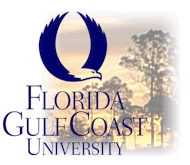


![]() Session 12/DL
Colloquium/Spring 2006
Session 12/DL
Colloquium/Spring 2006
April 3- 9April 5 - 11
Environmental Education I
" We Americans have yet to face the rapaciousness of our economic system, yet to face overconsumption, yet to turn in any serious way toward sustainable practices. American political and corporate thinking is characterized by an American confidence in political and technological solutions, by a peculiar American optimism for the future. And while I myself may not be optimistic, I am a hopeful and determined student of these trends and crosstrends and I am a great believer in the power of environmental education."
-unknown author
![]() Internet
Reading/WebBoard Assignment
Internet
Reading/WebBoard Assignment
Click here for this week's reading on The Earth Charter
The Earth Charter is an authoritative synthesis of values, principles, and aspirations that are widely shared by growing numbers of men and women in all regions of the world. The principles of the Earth Charter reflect extensive international consultations conducted over a period of many years. These principles are also based upon contemporary science, international law, and the insights of philosophy and religion. Successive drafts of the Earth Charter were circulated around the world for comment and debate by nongovernmental organizations, community groups, professional societies, and international experts in many fields.
I attended a conference entitled: Teaching for the Environment in Higher Education - The Promise of the Earth CharterÊ
The purpose of this symposium was to reflect upon the larger human ecological, ethical, and environmental contexts in which teaching takes place, and to provide the scholarly analysis and inspiration to advance teaching for the environment. An organizing theme of the symposium was the implication of the Earth Charter for higher education.
Higher education has a responsibility to raise ethical and esthetic questions of the human relationship to the environment, to educate about the natural systems of which humans are a part, and to engender ecological literacy. At the same time, the academy resists embracing environmental education. How might the academics move their institutions toward curricula, practices, and visions that include sustainability and responsibility to future generations? What ethical frameworks and pedagogues might make this possible?These were some of the questions I have considered in helping to create "homes" for courses like the University Colloquium at other institutions of higher learning. Please comment on the WebBoard with your reactions to the Earth Charter and its place in higher education. (this reading might help you with your final paper).
(Remember that WebBoard participation counts for 10% of your final grade and 30 journal entries = A).
FINAL PROJECT/JOURNAL
If you have not emailed me your idea for your final project, you need to do so right away. Continue to make entries in your Journal.
Home |Introduction |Writing Papers |Readings |Schedule |Assignments |Journals |Final Project |Field Trips | Rubrics |Links
© FGCU 2006. This is
an official FGCU
web page.Website designed by
Carol Newcomb-Jones
Florida Gulf Coast University
10501 FGCU Blvd. South Fort Myers, Florida 33965